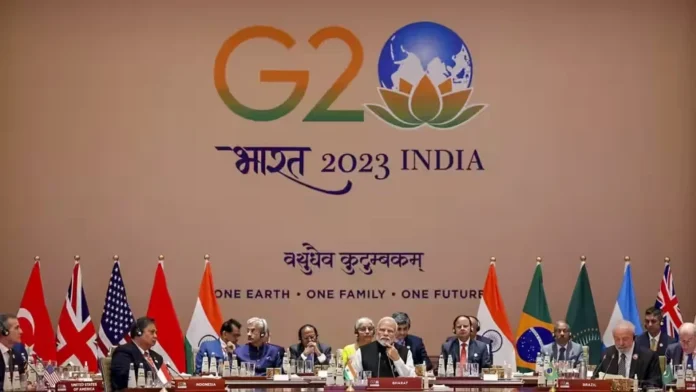With its rich history, diverse culture and rapidly growing economy, India stands at the cusp of redefining global power dynamics. Its journey from a post-colonial state to an emerging superpower is marked by significant economic, political and social transformations. This article delves into India’s ascent on the global stage, emphasising its inclusive growth model, strategic diplomacy and challenges.
Economic Liberalisation and Reforms
India’s economic liberalisation in 1991 ushered in by then Finance Minister Dr Manmohan Singh, who abolished Licence Raj — the root cause of stunted economic growth and corruption in the Indian economy for decades — was a watershed moment that catapulted the nation onto the global economic map. The transition from a protectionist economy geared to the Nehruvian Socialism model to a free-market economy resulted in accelerated GDP growth, increased foreign investment and the rise of a robust middle class. Key taxation, banking and industrial policy reforms since then have further consolidated India’s economic foundation.
One of the most significant milestones, in 2017, under the Narendra Modi government was the introduction of the Goods and Services Tax (GST), which simplified the indirect tax structure, creating a level and unified national playing field. The Insolvency and Bankruptcy Code (IBC) of 2016 was another pivotal reform to improve the ease of doing business by streamlining and resolving insolvencies. Foreign Direct Investment (FDI) policies have been progressively liberalised, attracting significant investments across various sectors—including technology, manufacturing and infrastructure.
Digital India and Tech Advancements
The Digital India initiative, launched in 2015, aims to transform India into a digitally empowered society and knowledge economy. With over 1.3 billion people, India’s technological leap is unparalleled, particularly in mobile connectivity and Internet penetration. The proliferation of fintech, e-commerce and digital services has boosted economic growth and fostered financial inclusion, empowering millions of unbanked citizens.
For instance, the Unified Payments Interface (UPI), a real-time payment system, has revolutionised digital transactions, making India one of the leaders in digital payments globally. The rise of digital startups, such as Paytm, Flipkart and Byju’s, has showcased India’s innovative spirit, contributing significantly to the economy and creating millions of jobs.
Inclusive Growth and Social Progress
Education and Skill Development: India’s demographic dividend, with a significant proportion of its young population, presents both an opportunity and a challenge. Such initiatives as Skill India and the National Education Policy (NEP), 2020, aim to harness this potential by providing quality education and vocational training. These efforts are critical for building a skilled workforce capable of driving innovation and economic growth.
NEP, 2020, seeks to overhaul the educational framework, emphasising holistic and multi-disciplinary learning. It aims to increase the Gross Enrolment Ratio in higher education to 50 per cent by 2035 and introduced flexible curricular structures. Skill India, on the other hand, targeted training over 400 million individuals by 2022 in various skills, enhancing employability and promoting entrepreneurship.
The Unified Payments Interface (UPI), a real-time payment system, has revolutionised digital transactions, making India one of the leaders in digital payments globally
Gender Equality, Women’s Empowerment: Promoting gender equality is central to India’s vision of inclusive growth. Such programmes as Beti Bachao, Beti Padhao (Save the Daughter, Educate the Daughter) and the Pradhan Mantri Mudra Yojana, which provides financial support to women entrepreneurs, are steps towards bridging the gender gap. The increasing participation of women in the workforce and leadership roles signifies progress, although challenges remain.
Women’s representation in various sectors has improved, with numerous successful women-led enterprises emerging nationwide. Such initiatives as the Udyam Sakhi portal enable women entrepreneurs to access credit and other resources. According to the National Sample Survey, the female labour force participation rate has been gradually increasing, reflecting a positive trend towards gender inclusivity.

Development and Poverty Alleviation
Despite urbanisation, most of India’s population resides in the rural areas. The Mahatma Gandhi National Rural Employment Guarantee Act (MGNREGA) and such schemes as the Pradhan Mantri Awas Yojana (PMAY) for housing are pivotal in addressing rural poverty and unemployment. Additionally, the Swachh Bharat Abhiyan (Clean India Mission) has improved sanitation, public health and dignity of life.
MGNREGA, guaranteeing 100 days of wage employment to rural households, has provided economic security and reduced rural distress. The Pradhan Mantri Awas Yojana aims to provide affordable housing to the urban and rural poor, with millions of houses already built and occupied. The Swachh Bharat Abhiyan has significantly improved sanitation facilities, with over 100 million toilets constructed, reducing open defecation and improving health outcomes.
Strategic Diplomacy, Global Engagement
Act East and Neighbourhood First Policies: India’s foreign policy, characterised by the Act East and Neighbourhood First policies, underscores its commitment to regional stability and cooperation. Strengthening ties with South-East Asian nations and fostering partnerships within South Asia are crucial for economic integration and security. India’s active participation in such regional organisations as the ASEAN and SAARC highlights its role as a regional leader.
Key initiatives under the Act East Policy include enhancing connectivity and economic cooperation with ASEAN countries through such projects as the India-Myanmar-Thailand Trilateral Highway. The Neighbourhood First Policy focuses on building cordial relations with India’s neighbouring countries, exemplified by the Bangladesh-Bhutan-India-Nepal (BBIN) Initiative, promoting regional trade and connectivity.
Programmes such as Beti Bachao, Beti Padhao and the Pradhan Mantri Mudra Yojana, which provide financial support to women entrepreneurs, are steps towards bridging the gender gap
Strategic Partnerships and Multilateralism: India’s strategic partnerships with major global powers, including the US, Russia and the European Union (EU), reflect its balanced and strategic approach to international relations. Engagements through such forums as the Quadrilateral Security Dialogue (Quad) and Brazil-Russia-India-China-South Africa (BRICS) demonstrate India’s commitment to multilateralism and global governance.
India’s defence and strategic ties with the US have strengthened through such agreements as the Logistics Exchange Memorandum of Agreement (LEMoA) and the Communications Compatibility and Security Agreement (ComCaSA). Similarly, India-Russia relations remain robust, with collaborations in defence, nuclear energy and space technology. Participation in such multilateral organisations as the United Nations, G20 and the World Trade Organisation (WTO) underscores India’s role in the global decision-making processes.
Soft Power and Cultural Diplomacy: India’s soft power, rooted in its rich cultural heritage, spirituality and democratic values, plays a significant role in its global influence. Such initiatives as the International Day of Yoga, which is now celebrated worldwide, and the spread of Indian cinema, cuisine and literature enhance India’s cultural appeal as an ethnic cultural melting pot. Educational exchanges and scholarships further strengthen people-to-people ties.
Bollywood, one of the largest film industries globally, has a vast international audience, contributing to India’s cultural diplomacy. With its universal appeal, Yoga has become a symbol of India’s soft power, promoting health and wellness worldwide. Such educational programmes as the Indian Technical and Economic Cooperation (ITEC) and scholarships for international students foster academic and cultural exchanges.
India’s soft power, rooted in its rich cultural heritage, spirituality and democratic values, plays a significant role in its global influence
Challenges and the Road Ahead
Geopolitical Tensions and Security Concerns: India’s rise is not without its challenges. Geopolitical tensions, particularly with neighbouring Pakistan and China, pose significant security concerns. The ongoing border disputes and the threat of terrorism require a robust defence strategy and diplomatic acumen. Modernising its armed forces and enhancing its defence capabilities are vital for maintaining India’s sovereignty and peace. The Doklam standoff with China in 2017, the Pulwama attack in 2019, and the Galwan clashes in 2020 are stark reminders of India’s security challenges. Modernisation initiatives, including the induction of advanced fighter jets and submarines and the development of indigenous defence technologies, are crucial for enhancing defence preparedness.
Economic Disparities and Social Inequities: While economic growth has lifted millions out of poverty, disparities persist. Addressing income inequality, ensuring equitable access to healthcare and education and creating sustainable livelihoods are critical for inclusive growth. Policies promoting social justice and economic equity must be at the forefront of India’s development agenda. Such programmes as the Ayushman Bharat scheme, providing health insurance to over 100 million families, aim to bridge healthcare disparities. The National Rural Livelihood Mission (NRLM) promotes self-employment and entrepreneurship among the rural population, contributing to poverty alleviation and economic inclusion.
India’s rise is not without its challenges. Geopolitical tensions, particularly with neighbouring Pakistan and China, pose significant security concerns
The Environmental Sustainability Angle
As India industrialises and urbanises, environmental sustainability becomes increasingly important. The impact of climate change, evident in extreme weather events and ecological degradation, necessitates urgent action. India’s commitment to the Paris Agreement and initiatives, such as the International Solar Alliance, highlight its proactive stance on climate action. Sustainable development policies and renewable energy investments are essential for balancing economic growth with environmental stewardship. India’s ambitious targets included achieving 175 GW of renewable energy capacity by 2022 and reducing carbon emissions intensity by 33-35 per cent from the 2005 levels by 2030. Such projects as the world’s largest solar park in Karnataka and wind energy installations demonstrate India’s commitment to a sustainable future.
Shaping the 21st Century World Order
India’s journey towards becoming an inclusive global power is a testament to its resilience, diversity and strategic vision. India is poised to play a pivotal role in shaping the 21st-century world order by embracing economic reforms, promoting social equity and engaging in strategic diplomacy. However, navigating the complexities of geopolitical tensions, social disparities and environmental challenges will require sustained efforts and innovative solutions.
As India continues to evolve, its commitment to inclusivity and global cooperation will be key to its success on the world stage.
-The writer is a Defence, Aerospace and Political Analyst based in Bengaluru. He is also Director of ADD Engineering Components, India, Pvt. Ltd, a subsidiary of ADD Engineering GmbH, Germany. You can reach him at: girishlinganna@gmail.com
-The author is a Defence, Aerospace & Political Analyst based in Bengaluru. He is also Director of ADD Engineering Components, India, Pvt. Ltd, a subsidiary of ADD Engineering GmbH, Germany. You can reach him at: girishlinganna@gmail.com. The views expressed are personal and do not necessarily carry the views of Raksha Anirveda







